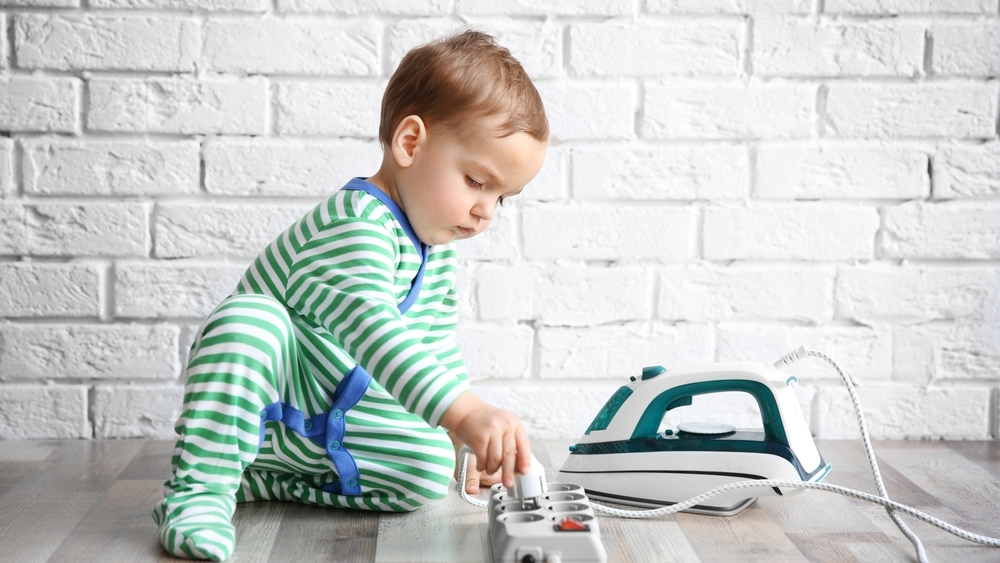If you have a new baby in the house, it’s time to start thinking about childproofing your home. Babies become mobile sooner than you think and it is up to you to keep them safe from household perils. Check online or at a home-improvement or baby supply store for a wide selection of latches, gates, door knob covers and other devices to keep babies and small children from harming themselves. Here are a few safety tips to keep in mind.
Electrical dangers. In some new homes, electrical plugs have a built-in resistance to having objects inserted into them, making it hard for even an adult to plug in an appliance. If not, it’s well worth the investment to purchase plastic plugs to cover each electrical outlets.
Water temperature. Pediatricians typically recommend that the thermostat on the hot water heater be set no higher than 120 F degrees. If you live in an older home, replace shower heads and tub spouts with fixtures that have built-in anti-scald devices. Depending on where you live, code may require an anti-scald valve.
Stairs. If you live in a home with stairs, you’ll need to install baby gates at the top and the bottom of the staircase. Use the proper installation hardware to make sure that the gates are fastened securely. Be sure to close any doors leading to a staircase. Install a door knob cover to prevent babies and small children from opening.
Window safety. Falls from upstairs windows can be prevented with devices that limit how high the window can be opened. Newer windows have built-in latches that do this job. Avoid window treatments that use cords, which could become entangled around a small child’s neck.
Storage of medicines and household chemicals. All medicines, household cleaners and other chemicals stored in the home must be kept far from the reach of little ones. Store in safety-latched cabinetry in a location out of sight and out of reach of children. In particular, keep all medicines and chemicals as far away from the kitchen as possible so that a child who encounters them doesn’t mistake them for food. Properly dispose of items that have expired or are no longer needed.
Garage door safety. The garage door opener should be tested a few times per year to make sure the automatic obstruction reverse works. To test, place a two-by-four board on the ground where the door will touch down. Once it hits the board, it should stop and reverse itself. The electric eye should also be tested. Wave an object into the eye’s range of view to be certain the door responds properly.
Pool safety. Install a minimum four-foot fence, with a self-latching gate, around a swimming pool. This is more than common sense, it many areas it’s the law. A pool cover over the top will protect a child from falling in. An alarm on any door from the house to the pool area will alert you that the door has been opened.
Gun safety. No amount of caution exercised is too much. Store weapons in a locked gun safe. Store them unloaded with gun locks that prevent them from operating.
Miscellaneous safety issues. Keep car keys safely away from children to prevent them from potentially mimicking an adult and using them to start a vehicle. When preparing meals, try to cook on the back burners. Always turn pot handles toward the back of the stove.


